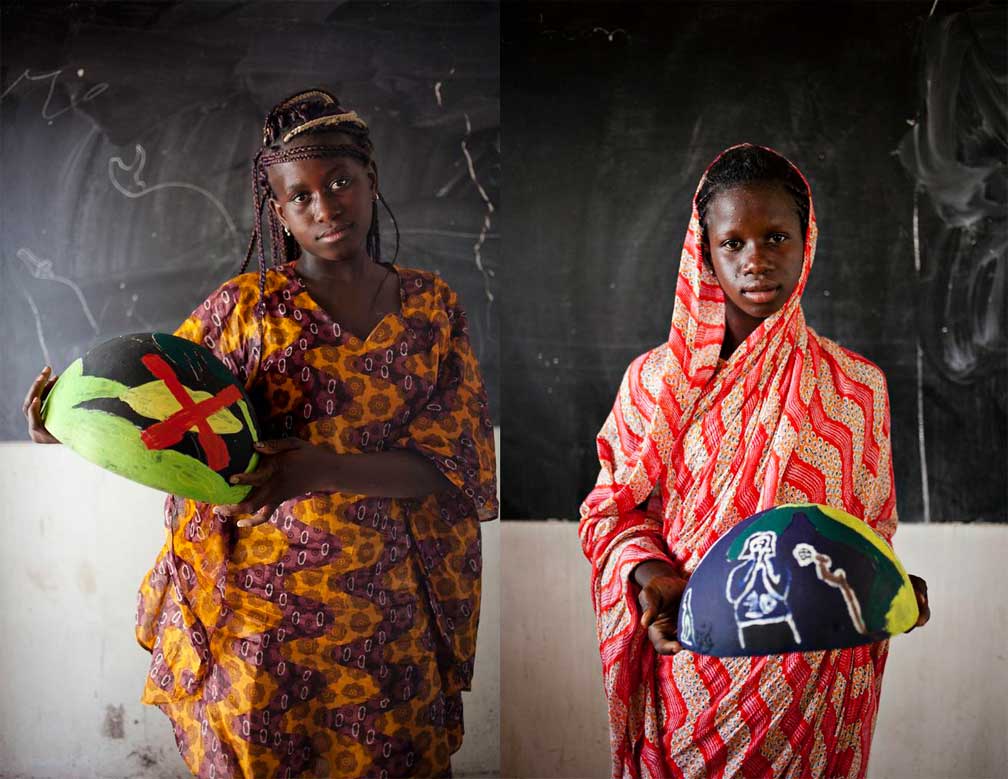
Article 14 – Freedom of Expression, Thought, Conscience and Religion
The Kolda region is rich in its diversity with Muslims and Christians living side by side together. Children have the right to receive and share information, as long as the information is not damaging to them or others irrespective of their culture, ethnicity or religion. They should not be silenced or prevented from speaking out. In exercising the right to freedom of expression, children have the responsibility to also respect the rights and freedoms of others.
Salimata and Seynabou were particularly keen to address issues about the freedom of expression. Salimata’s artwork depicts a simple yet powerful representation of the lack of freedom of expression. ‘Without freedom to speak it is like someone covering your mouth all the time’ (Salimata). Whilst on the other hand Seynabou’s artwork symbolizes the importance of all children – irrespective of culture, ethnicity or religion, having a voice and the freedom to express their inner most thoughts and opinions. ‘In my culture, children are afraid to speak out when they are being abused. Once children learn about their rights and speak out – the abuse can be addressed openly and begin to stop ’. (Seynabou)

